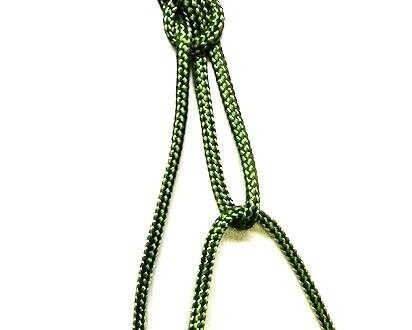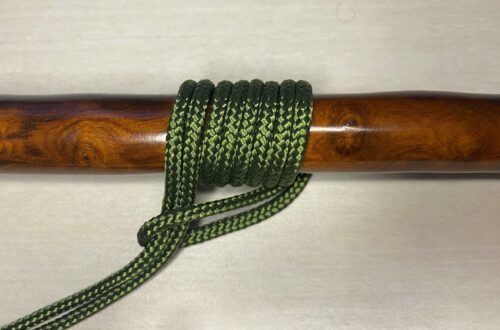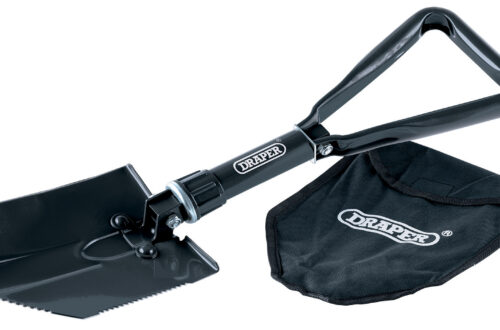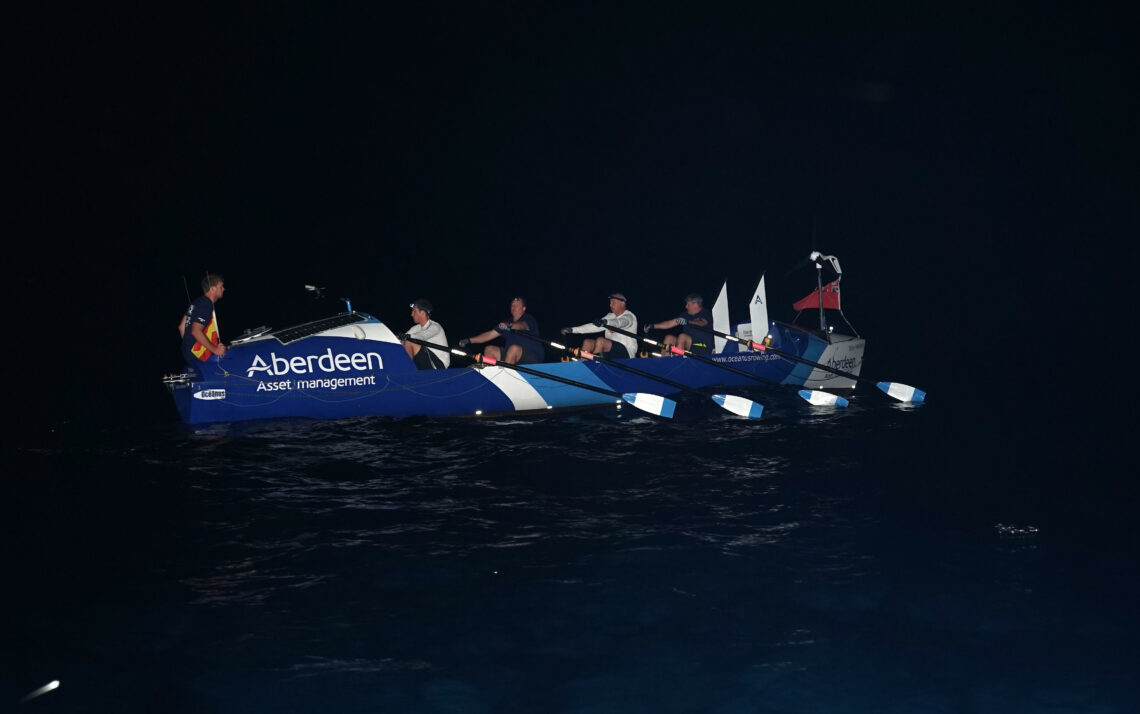
Triumph Over the North Atlantic Ocean : a Monumental Rowing Adventure
Rowing the North Atlantic is a monumental feat that requires incredible physical and mental endurance.
The North Atlantic is known for its challenging weather patterns, strong currents, and unpredictable conditions, making it one of the most demanding bodies of water to cross.
On 28th Jan 2016, approaching midnight – I was sitting in my rowing position on the “Toby Wallace”, a light-weight ocean rowing boat; ‘primed and ready for an attempt’ on a world record.
Our challenge was to Row across the North Atlantic, setting off from Marina Puerto De Mogan Gran Canaria, 4815Km. / 2992 miles to Port St Charles Barbados faster than anyone before.
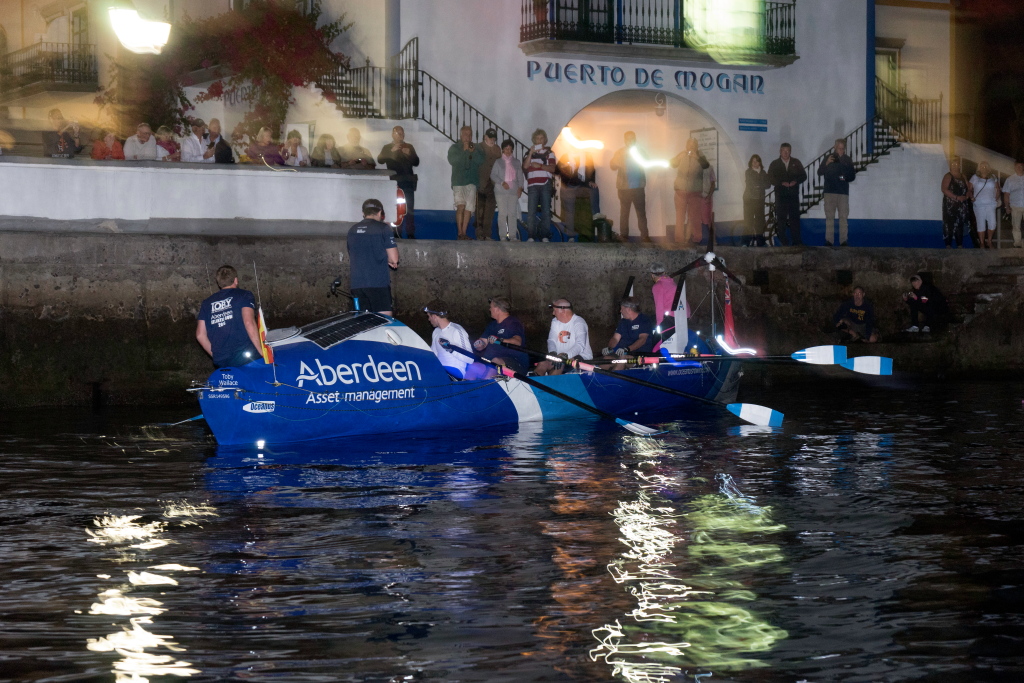
I was musing !!!! Rowing the Atlantic seemed a good idea at the time.
On reflection !!!! However the reality, as with much of life, it’s not all it seems.
Ocean Rowers will row for 12 hour in every 24 hours; 2 hours on and off for two hour.
However, our skipper Simon Chalk had established a new system; every day for the next 34+ days on the Atlantic; each 24 hours we rowed 12 hours in 1 x 4 hr : 1 x 3 hr : 2 x 2 hr : 1 x 1 hr sessions or in nautical terms ‘watches’.
Ocean rowing is physically demanding, what may surprise some, ‘including me‘, is that the challenge is 70% mental and 30% physical.
To help prevent injury or exhaustion, it is essential to start with a solid base level of fitness. Therefore, a well-structured training plan and dedicated time for preparation are crucial before embarking on your crossing. Time on the ergo and time on the water is essential.
I suffered for a full three days from sea sickness. Nothing stayed down for long, including my sea sickness tablets! Sips of water were all my stomach would accept.
When we came off our watch, we boiled water and reconstituted our freeze dried meal. First week we did not eat very regularly but I did always try to keep myself hydrated.
The Toby Wallace has two under-deck ‘Coffin Berths’, in the keel, running directly below the rowing stations; where two sleeping crew act as human ballast – yes that was Me!
On the positive side, we were allotted a refreshing three-minute break every hour to hydrate, indulge in snacks, and attend to personal needs, (inc…wee & poo) all conveniently managed at our seats.
The Skipper, Simon Chalk had made it plain that the shift change was to be slick and speedy.
Whilst changing over the boat speed would drop, 6 shift changes each day, over say 30 days could make all the difference!
I could not sit in the cabin I was too big, the hatch was small, squeezing in and out then crawling to our rowing position ‘unattached’ with a bottle of water and sheep skin in one hand was not easy. After a week my knees were both open wounds. I tried to crouch instead of crawling. Another learning opportunity happened.
My balance is shit…. an unexpected swell tipped me into the South Atlantic!
Knowing the average depth below my arse is 3600m /12000ft – half measures were not an option; I grabbed the gunnel and clung fast.
I did note the water was warmer than I expected or was I leaking?
A shout went up, “Man Overboard”. It was day light so all could see me: I was gripping and struggling to get back on board. Simon’s expression told me he was unimpressed.
It was Murray who came to my assistance he put his hand out. We linked hand on each other’s wrist. He pulled; I grunted and slowly flopped back on board.
Incident over, I got on my seat and start rowing.
An exhilarating yet humbling experience that reminds me of my insignificance in the vastness of the world.
**I am excited to share the captivating story of my extraordinary journey with you. Also my How-To Becoming a Fearless Adventurer
Crew Profiles for the “TOBY WALLACE” January 2016
#livealifetodiefor #MoreThanMyPast #itsrogerx #RNLI #oceanrowing #worldrowing
As I have grown older, well-travelled and somewhat more informed I truly appreciate ‘Time’ is my most precious resource. ‘A day at a time’, I accept I am passing through Life just this once! I choose not to waste the Adventure!


